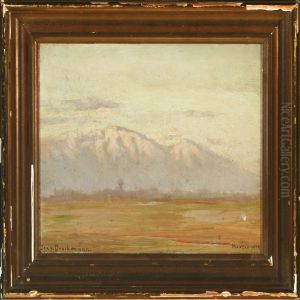Jens Holger Drachmann Paintings
Jens Holger Drachmann was a Danish poet and dramatist whose work is considered a vital part of the Modern Breakthrough in Scandinavian literature. Born on October 9, 1846, in Copenhagen, Denmark, Drachmann was the son of a physician. He initially embarked on a maritime career before turning to painting and eventually focusing on writing. His love for the sea and Danish national romanticism heavily influenced his early work, making him a prominent figure in Danish literature towards the end of the 19th century.
Drachmann's literary career began in the 1870s when he emerged as a passionate and rebellious voice advocating for social and artistic freedom, which was part of a broader European movement pushing back against traditional conventions in art and literature. His poetry and plays often explored themes of love, nature, and the struggles of the human spirit, reflecting his own turbulent personal life and romantic entanglements. Drachmann was known for his bohemian lifestyle and became a central figure in the cultural life of Denmark, engaging with contemporary debates on morality, aesthetics, and national identity.
Despite facing criticism for his sometimes uneven work and for what some perceived as a decline in the quality of his later output, Drachmann's contributions to Danish literature were significant. He helped to introduce a new lyrical and emotional depth to Danish poetry, experimenting with form and content. His best-known works include the collections of poems 'Digte' (1872) and 'Ranker og Roser' (1875), as well as the play 'Der var engang' (Once Upon a Time, 1885). Drachmann's dedication to exploring and expressing the complexities of the human condition, along with his evocative descriptions of the Danish landscape, endeared him to readers and influenced subsequent generations of Scandinavian writers.
Jens Holger Drachmann passed away on January 14, 1908, in Hornbæk, Denmark. His legacy is preserved not only through his contributions to literature but also through Drachmann's House in Skagen, which has been turned into a museum dedicated to his life and work. Drachmann's impact on Danish literature is remembered for his passionate pursuit of artistic and personal freedom, his lyrical and innovative use of the Danish language, and his deep connection to the natural and cultural heritage of Denmark.
